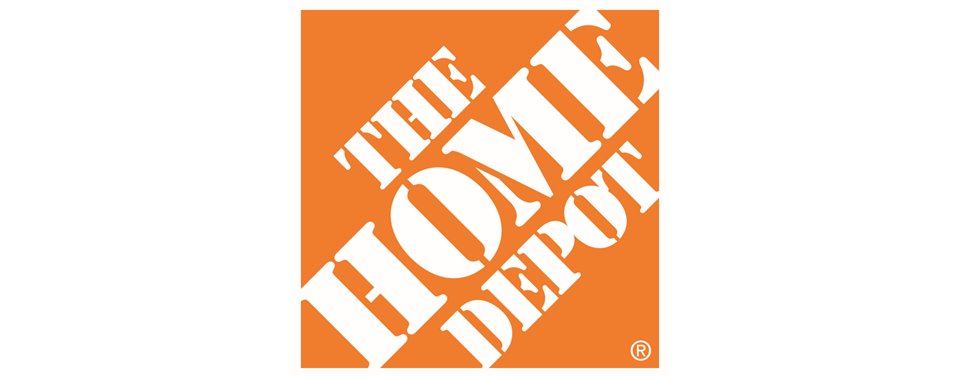Leading Companies in the Global BOPIS Market 2025
Author:
Intellectual Market Insights Research
Published Date:
11 Apr 2025

Global Market Growth & Trends
The global Buy Online, Pick Up in Store (BOPIS) market has been radically transformed in the past decade with the growing rate of consumers' expectations, technology, and evolving models of retailing. BOPIS is now one of the prevailing omnichannel solutions that bridge the digital and in-store shopping environment, offering consumers the convenience of online shopping and the immediacy of in-store pick-up. This blended strategy complements the buying process while enabling stores to optimize stock management, reduce shipping expenses, and drive individuals into stores.
Demand for convenience in the shopping mode has been a key motivator for embracing the use of BOPIS. As the online retail channel continues from strength to strength, consumers find themselves looking more and more for fast, efficient experiences that deliver speed with choice. BOPIS accomplishes this to some degree by allowing consumers to avoid wait time for shipping and delivery fees, but still gain the benefit of being able to shop and purchase online. Physical retailers within the broad spectrum of categories from clothing and food items to household goods and electronics have implemented or established BOPIS capabilities to compete and respond to evolving shopping patterns among consumers.
Technology advancement has also enabled the dissemination of the BOPIS model. Improvements in stock management software, real-time order tracking, and mobile application have helped in making order fulfilment smooth and seamless.
Integration of technology such as AI and data analytics also facilitates more accurate demand forecasting and personalized customer interaction. Moreover, consumers' preferences for convenience and safety have been met with the growing use of digital lockers, curb side pickup, and automated notice systems, which have made the pickup process seamless.
The COVID-19 pandemic also accelerated the take-up of BOPIS because lockdowns and concerns over health created a surge in online purchasing and contactless engagement. Retailers shifted programs of digital transformation more rapidly during this time, adding BOPIS functionality onto their websites to meet changing behaviour from consumers. Regardless of how much the pandemic acted as a driver, however, continued use of BOPIS post-pandemic suggests that it still holds significant appeal within the retail industry. Consumers have grown to enjoy the convenience and speed of this type of fulfilment, and as such it has become a core part rather than a fad.
BOPIS also advantage retailers on the aspect of increased customer retention and upselling. Because customers must physically visit stores to pick up orders, they are exposed to other merchandise and offers, which would increase overall sales. BOPIS also helps retailers address last-mile logistics more cost-effectively because in-store pickup can subtract from delivery networks and reduce failed deliveries or return risk.
Leading Companies in the Market
♦ Target Corporation

Headquarters: Minneapolis, Minnesota, USA
Founded: 1902
Employees: Approx. 415,000
Revenue (2024): $109 billion
BOPIS Strength: Leader in seamless app-to-store pickup experience.
Regional Focus: USA
Target has become a benchmark brand for BOPIS by seamlessly integrating digital and physical channels. Through its proprietary technology stack, in-store fulfillment network, and logistics partnerships, it fulfills most online orders either via Same-Day Delivery, Drive-Up, or Order Pickup.
BOPIS Features:
- Same-Day Services: Drive Up grew 70% YoY (2024).
- Tech Integration: Uses predictive AI for local inventory visibility.
- Omnichannel Strategy: Over 75% of online orders are fulfilled from stores.
- Innovation Labs: Target Accelerators (partnering with startups to enhance supply chain and fulfillment).
♦ Walmart Inc.

Headquarters: Bentonville, Arkansas, USA
Founded: 1962
Employees: Approx. 2.1 million
Revenue (2024): $643 billion
BOPIS Strength: Curbside and Express Pickup rolled out across 4,700+ stores.
Regional Focus: North America, Mexico, and India
Walmart is the pioneer and global leader in Buy Online, Pick Up In Store (BOPIS) innovation. With unparalleled retail infrastructure and data-driven logistics, Walmart transformed its stores into efficient last-mile fulfillment centers.
BOPIS Features:
- Store-as-a-Hub Model: 90% of U.S. population lives within 10 miles of a Walmart.
- Same-Day Pickup: Offered at over 4,700 U.S. stores.
- Omnichannel Integration: Real-time inventory synced across mobile, web, and app.
- Express Delivery: Partnered with drone and autonomous vehicle startups.
♦ Amazon

Headquarters: Seattle, Washington, USA
Founded: 1994
Employees: Approx. 1.5 million
Revenue (2024): $578 billion
BOPIS Strength: Integration of lockers and Fresh pickup services
Regional Focus: Global
While Amazon India is primarily a digital-first marketplace, it's experimenting with hybrid retail formats as part of its last-mile innovation goals, including BOPIS-style experiences.
BOPIS Features:
- Amazon Easy Stores: Partner-run shops that enable assisted e-commerce, order pickups, and returns.
- I Have Space Program: Small retailers in Tier-2/3 towns serve as delivery/pickup agents.
- Smart Stores: QR code-enabled local retail stores allowing scan-to-buy and later pickup.
- Amazon Fresh: Hyperlocal delivery in metro cities now includes limited pickup window options (pilot in Bengaluru, Delhi NCR).
♦ The Home Depot

Headquarters: Atlanta, Georgia, USA
Founded: 1978
Employees: Approx. 470,000
Revenue (2024): $161 billion
BOPIS Strength: Over 60% of online orders fulfilled through store pickup
Regional Focus: USA, Canada, Mexico
The Home Depot is a trailblazer in BOPIS adoption among big-box retailers, and its strategy is deeply integrated with its “Interconnected Retail” model that unifies physical stores with digital channels.
BOPIS Features:
- Same-Day Pickup: Available at nearly all U.S. stores.
- Locker Pickup Systems: Deployed in urban/high-traffic locations.
- Curbside Pickup: Highly rated service on app and web platforms.
- Project Scheduling: Allows pros and contractors to pick up tool rentals, materials, and orders in a single trip.
- Real-Time Stock Visibility: Integrated POS and logistics software.
♦ Alibaba

Headquarters: Hangzhou, China
Founded: 1999
Employees: Approx. 240,000
Revenue (2024): $140 billion
BOPIS Strength: AI-powered pickup in Hema retail chain
Regional Focus: China & Southeast Asia
Alibaba has integrated BOPIS models deeply within its “New Retail” strategy, blending online ordering with local in-store pickup and delivery.
- Freshippo: Core BOPIS grocery model, ready for 30-minute in-store pickup.
♦ Carrefour

Headquarters: Boulogne-Billancourt, France
Founded: 1958
Employees: Approx. 320,000
Revenue (2024): $87 billion
BOPIS Strength: Strong Click & Collect integration in Europe
Regional Focus: Europe, Latin America
Carrefour has become a BOPIS innovator in European grocery retail, merging online and in-store fulfillment with major investment in logistics and predictive tech. They lead in “Drive” and “Click & Collect” models, particularly in France, Spain, Belgium, and Brazil.
BOPIS Features:
- Carrefour Drive: Order online, pickup at dedicated drive-through stations.
- Express Pickup: Ready in under 2 hours in urban stores.
- AI Inventory: Forecast demand to streamline fulfillment.
- Micro-Fulfillment: Implemented in 70+ high-density cities.
♦ IKEA (Ingka Group)

Headquarters: Delft, Netherlands
Founded: 1943
Employees: Approx. 231,000
Revenue (2024): $48 billion
BOPIS Strength: Parcel collection hubs & modular pickup stations
Regional Focus: Europe, Asia, Americas
IKEA’s “Click & Collect” model is central to its affordable, accessible, and low-carbon fulfillment strategy. With its large-format stores and demand-driven warehouses, IKEA supports flexible fulfillment globally.
BOPIS Features:
- Click & Collect: Standard across 90% of stores.
- Locker Pickup Stations: Introduced in EU cities and malls.
- Mobile App Integration: Real-time pickup scheduling and route optimization.
- Micro Fulfillment Centers: Piloted in France, UK, and Germany.
- AI for Inventory: Used for demand forecasting and location-based pickup routing.
♦ Zara

Headquarters: Arteixo, Spain
Founded: 1975
Employees: Approx. 165,000
Revenue (2024): $38 billion
BOPIS Strength: Fashion-first omnichannel champion with global pickup lockers
Regional Focus: Europe, Americas, Middle East
Zara has been among the first movers in fashion BOPIS, particularly in Europe. Their strategy is grounded in RFID tech, mobile-first UX, and global logistics control via proximity manufacturing.
- Zara Click & Find: Real-time store inventory linked to app/web.
- BOPIS Express Lockers: Present in flagship stores across Europe and Asia.
- Integrated Mobile Pickup: Seamless pickup scheduling through the Zara app.
- In-Store RFID Scanning: Live inventory syncs enable 1-2 hour fulfillment.
Regional Breakdown of BOPIS Growth (2025 Forecast)
Region | CAGR (2025) | Leading Markets | Notes |
North America | 15.7% | USA, Canada | Mature infrastructure, mobile-first consumers |
Europe | 14.3% | France, UK, Germany | Logistics integration and urban pickup stations |
Asia-Pacific | 18.5% | China, India, Japan | Driven by Alibaba, JD.com, Reliance Retail, Flipkart |
Latin America | 11.9% | Brazil, Mexico | Rising mobile commerce, urban delivery growth |
Middle East | 10.5% | UAE, Saudi Arabia | Expanding mall & supermarket networks |
North America
- Dominant Region: Holds over 45% of global BOPIS stores.
- Leading in curbside innovations and real-time inventory sync.
- Powerhouses: Walmart, Home Depot, Target, Kohl’s.
Europe
- Over 350,000 BOPIS-ready stores.
- UK and Germany are front-runners, especially in fashion and lifestyle retail.
- Zara and Decathlon are leveraging RFID and hybrid logistics.
Asia-Pacific
- Rapid BOPIS adoption via smart lockers and train station pickups.
- Japan, South Korea, and Tier-2 Indian cities are leading.
- IKEA and Zara aggressively scaling.
Latin America
- Brazil and Mexico key markets with mobile-first BOPIS platforms.
- Walmart and local retailers investing in micro-fulfillment centers.
Middle East & Africa
- BOPIS is emerging via luxury retail and fashion, with strong adoption in UAE, KSA, and South Africa.
- Approx. 9,500 locations now support hybrid logistics.
Would you like me to add more details on specific companies or market trends? Let me know! CLICK HERE
About US:
Intellectual Market Insights Research is a global market intelligence and consulting organization that provides syndicated research reports, customized research reports, and consulting services. We are known for our actionable insights and authentic reports in various domains including, Semiconductor, aerospace, Automation, Agriculture, Food & Beverages, Automotive, Chemicals and Materials, and virtually all domains and an exhaustive list of sub-domains under the sun. We create value for clients through our highly reliable and accurate reports.
Contact Us: IMIR Market Research Pvt. Ltd.
Follow Us: LinkedIn
Email: sales@intellectualmarketinsights.com
Call Us: +1 (814) 487 8486



